The Division of Pediatric Critical Care has an active clinical and basic science research program. Please see below to learn more about our investigators and their research efforts.
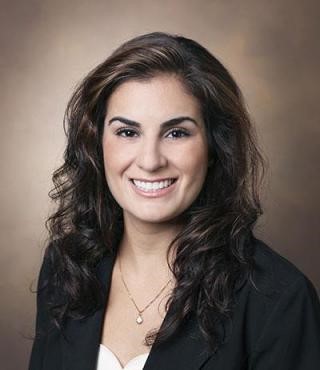
Kristina A. Betters, MD, MA
Dr. Betters' research interests are focused on early mobility, rehabilitation of the ICU patient, sedation, and delirium in critically ill children. She leads the multi-disciplinary ICU Liberation Committee at Monroe Carell Jr. Children’s Hospital at Vanderbilt and recently served as Co-Chair of the Society of Critical Care Medicine’s ICU Liberation Committee. She was an author on the 2022 SCCM Clinical Practice Guidelines on Prevention and Management of Pain, Agitation, Neuromuscular Blockade, and Delirium in Critically Ill Pediatric Patients With Consideration of the ICU Environment and Early Mobility (PANDEM). She was a founding leader of the American Delirium Society Pediatric Special Interest Group, and is member of the Critical Illness, Brain Dysfunction, and Survivorship (CIBS) Center and pediatric delirium team at Vanderbilt.
Click here to learn more about Dr. Betters’ research.

Hyehun Choi, PhD
Dr. Choi investigates the role of redox-based signaling in blood vessel inflammation. Her focus is on the pro-inflammatory cytokine, tumor necrosis factor alpha (TNFα) and the impact of receptor endocytosis on its signaling in the vasculature. Specifically, she is interested in how TNFα receptor endocytosis impacts the balance of signaling processes that occur at the cell surface vs. within receptor containing “signaling” endosomes.
Click here to learn more about Dr. Choi’s research.
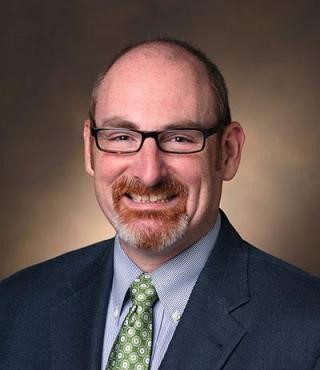
William B. Cutrer, MD, MEd, FAAP
Dr. Cutrer is interested in understanding how students learn in the workplace and how to help them learn more effectively. He was the Vanderbilt PI for their participation in the AMA’s Accelerating Change in Medical Education (ACE) Consortium, and was the leader of the Vanderbilt team participating in the AAMC pilot project Core Entrustable Professional Activities for Entering Residency (Core EPAs). He currently serves as the Chair of the Association of American Medical Colleges Group on Educational Affairs (GEA). He has published and presented widely on these topics.
Click here to learn more about Dr. Cutrer’s research.

Jennifer C. King, MD, PharmD
Dr. King is interested in medical education with an emphasis on medical simulation, procedural competency, and interprofessional learning. She is also interested in medication safety within the pediatric ICU with a particular research interest in the pharmacokinetics and pharmacodynamics of medications in critically ill children.
Click here to learn more about Dr. King’s research.
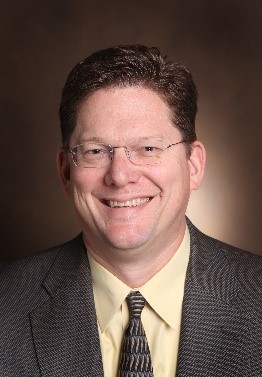
Fred Lamb, MD, PhD
Dr. Lamb is interested in how LRRC8 family anion channels support and regulate reactive oxygen species-dependent cytokine signaling in vascular smooth muscle cells. Disrupting the expression or function of these channels reduces extracellular production of superoxide anion by NADPH oxidase 1 (Nox1). This superoxide is required for signaling by molecules such as TNFα, IL-1β and bacterial endotoxin that promote inflammation. Movement of superoxide into cells via LRRC8 channels can also promote oxidative stress and cell injury. The Lamb lab is working to understand if inhibition of these channels can provide protection from both acute (sepsis), and chronic (hypertension, diabetes, atherosclerosis) vascular dysfunction.
Click here to learn more about Dr. Lamb’s research.
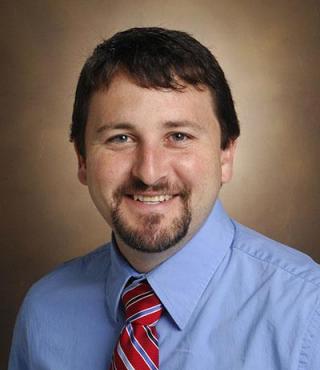
Patrick O'Neal Maynord, MD
Dr. Maynord is engaged in leading Quality and Efficiency Improvement work for the Pediatric Critical Care Division and the Pediatric Heart Institute. In the past, he has led Unplanned Extubation work nationally through the Solutions for Patient Safety improvement collaborative. He is currently focused on decreasing Length of Stay for cardiac surgical patients and improving feeding outcomes for neonatal cardiac patients.
Click here to learn more about Dr. Maynord's research.
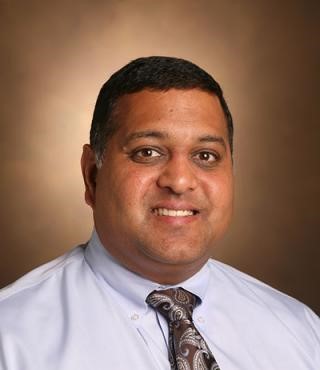
Neal R. Patel, MD, MPH
Dr. Patel's research interests include the development of a computerized database for the PCCU for quality assurance and clinical research as well as an electronic charting system for deep sedation services in collaboration with Integrated eMed Solutions.
Click here to learn more about Dr. Patel’s research.
Stephanie G. Patterson, MD, MS
Dr. Patterson conducts translational research evaluating host-microbiome interactions during critical illness. She is investigating the gastrointestinal microbiome in patients with congenital heart disease and critical illness to establish ways microbiome changes impact patient nutritional and infectious disease outcomes. Her multidisciplinary team is working to establish a microbiome biorepository which will be foundational in the study of microbiome and metabolomic alterations during specific disease states and discovering treatments to optimize the gastrointestinal microbiome and improve patient outcomes.
Click here to learn more about Dr. Patterson's research.
Jeffrey C. Rohrbough, PhD
Dr. Rohrbough investigates the ion transport properties of the ClC-3 2 Cl-/1 H exchanger and the LRRC8 (VRAC) chloride channel, and developmental chloride conductances in the ductus arteriosus. He uses electrophysiological recordings (whole cell, perforated patch and intracellular recordings), confocal microscopy, and optical cellular recording of intracellular Cl- and pH. Dr. Rohrbough received his training in Neuroscience at the University of California Los Angeles. His earlier work focused largely on synaptic development, including the functional development of voltage-gated ion channels and multiple classes of synaptic transmitter receptors (GluR, GABAR, AChR) in vertebrate spinal neurons, and the development and genetic regulation of glutamatergic synaptic function in Drosophila.
Click here to learn more about Dr. Rohrbough’s research.
Andrew H. Smith, MD, MSCI, MMHC
Dr. Smith is a pediatric cardiac intensivist whose academic efforts focus upon understanding and improving outcomes for children following congenital heart surgery. Specifically, his interests include the application of supervised machine learning approaches to better appreciate modifiable risk factors associated with postoperative clinical outcomes, understanding and mitigating the cognitive burden associated with interruptive alerts in an intensive care unit environment, and leveraging clinical registry experience to explore linkages between large administrative and clinical datasets to better understand resource demands associated with high-quality care. For over 15 years, he has also pursued his interest in personalized medicine by exploring the role of genetic variants and their contribution to postoperative outcomes commonly encountered in the cardiac intensive care unit.
Click here to learn more about Dr. Smith's research.
Matthew Solomon, MD
Dr. Solomon’s research focuses on establishing mechanisms of fluid overload and vascular hyperpermeability in high-risk subpopulations of critically ill children. Additionally, he is interested in utilizing impedance analyses to characterize fluid status and identify novel biomarker profiles for fluid overload. As a long-term goal, he aims to apply translational research methods to bridge bench to bedside and improve ICU related outcomes.
Click here to learn more about Dr. Solomon's research.
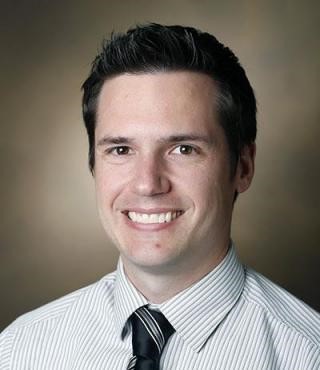
Ryan Stark, MD
Dr. Stark focuses on the effect severe inflammation has on the vascular endothelium. His previous focus was on endothelial nitric oxide synthase (eNOS) which regulates many key functions of endothelial cells, namely vasomotor tone, cellular adhesion to myeloid cells and endothelial permeability. His basic-translational research program now encompasses immunometabolism and oxidant stress within critical illness vasculopathy with an overarching goal of understanding vascular dysfunction during severe inflammation.
Click here to learn more about Dr. Stark’s research.

Jessica Turnbull, MD, MA
Dr. Turnbull is interested in the care of chronically critically ill children at times of acute critical illness, communication with patients and their families, interdisciplinary communication, clinical ethics and palliative care in times of critical illness.
Click here to learn more about Dr. Turnbull’s research.
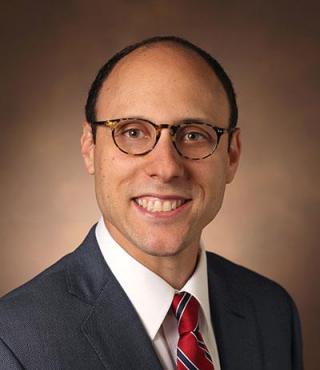
Michael S. Wolf, MD
Dr. Wolf is interested in neurocritical care, with a specific emphasis on preventing and treating increased intracranial pressure (ICP) and improving outcomes for children with traumatic brain injury (TBI). His main area of focus is the safe and effective use of analgesia and sedation in children with TBI. He is currently studying the effects of ketamine on ICP, vertebral perfusion, cerebrovascular autoregulation, and neuroprotection following pediatric TBI.